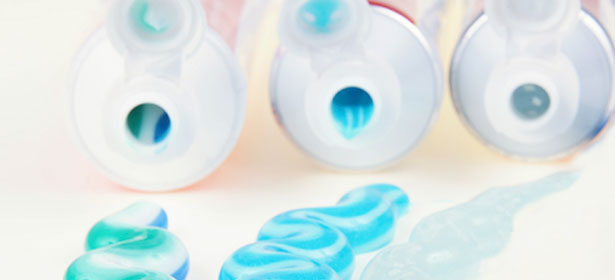7 Reasons Your Teeth May Be Sensitive
If the thought of eating ice cream or having an ice cold drink is enough to make you cringe chances are you at some point have suffered from tooth sensitivity.
So what is tooth sensitivity?
Many people describe this as pain when eating or drinking something hot, cold, sweet or acidic.
The most common reason for tooth sensitivity is exposed dentin. Dentin is the inner substance of your teeth which is covered by the hard enamel layer. This inner substance contains tiny tunnels linking to the nerves inside your teeth.
When enamel wears down dentin becomes exposed and generally will occur close to the gum line. This results in these tiny channels becoming exposed to temperature and food which stimulates the nerve and in turn causes pain.
What causes enamel wear?
Brushing your teeth aggressively
While we definitely recommend brushing after meals brushing must be done in the correct manner. If too much force is used, or if the bristles of your toothbrush are too hard, the protective enamel layer on your teeth can be worn down. Aggressive brushing can also contribute to gum recession. This eventually leads to exposed dentin and greater exposure of tooth nerves to changes in temperature and pressure.
Excessive consumption of acidic foods and beverages
There are a number of foods and beverages with a high acidic content. Some of these include tomato products, citrus fruits, pickles, sports drinks, carbonated drinks, and tea. These types of foods and drinks can contribute to the erosion of enamel and exposure of dentin. This, in turn, leads to greater tooth sensitivity. As we are well aware carbonated drinks are unhealthy in general and should be eliminated from your diet as much as possible.
We are not recommending that you cut citrus fruits or any other healthy acidic foods out of your diet completely but we do recommend that you counteract the acidic effects of these foods by eating cheese, milk, bananas or other foods which have a low acidic content.
Clenching or grinding
While it is true that enamel is the hardest substance in the human body, be aware that enamel is not indestructible. Grinding or clenching your teeth will not have immediate effects but over time results in the wear down of tooth enamel. This, in turn, exposes the inner dentin leading to tooth sensitivity. Anyone who finds they have this habit should consult their dentist as a splint is recommended to protect the teeth.
Excessive use of toothpaste or mouthwash
What you may not realise is the overuse of toothpaste and mouthwash can be harmful if overused. Many products on the market such as tooth whiteners, whitening toothpastes, and mouthwashes contain peroxide based bleaching solutions, acids, alcohol and other chemicals which remove stains.
These stain removing chemicals remove enamel on the teeth which again exposes the dentin layer and nerves. These types of products also exacerbate preexisting tooth sensitivity further by damaging the dentin layer. When in doubt about what oral hygiene products you should be using it is best to consult your dentist.
Gum recession
This condition is most commonly referred to as gum inflammation or gum disease as the gum layer starts to recede away from the teeth. Both of these conditions mean an increase in the exposure of sensitive tooth roots. These tooth roots carry temperature and pressure to the nerve centers within the teeth. It is common for people who suffer from gum inflammation and disease to also experience tooth sensitivity. It important for anyone who suffers from this condition to consult your dentist and maintain regular dental check-ups.
Sensitivity after a dental visit
We know that this may seem a little unfair but teeth can become sensitive after having dental procedures. Some procedures which may cause sensitivity include tooth extractions, root canal therapy, crown preparations & fillings. You will most likely come to find that this sensitivity will subside in about 4-6 weeks. If sensitivity does persist we recommend that you contact your dentist as this may be the result of something more serious.
Broken, decayed and cracked teeth
Cracked and broken teeth can result in the nerve center of the tooth being more exposed. This can result in pain when eating and drinking. If teeth are left untreated these areas become filled with bacteria from plaque and start to cause inflammation to the nerve center. An accumulation of bacteria also leads to the build-up of acid and the wearing down of the enamel layer. Cavities and decayed teeth expose the dentin layer as well as the roots of your teeth. So as mentioned it is important to have these teeth treated as broken, cracked and decayed teeth all contribute to tooth sensitivity.
We hope that this explains some of the reasons for tooth sensitivity. The good news is tooth sensitivity can be treated with the help of your dentist, the right oral hygiene products, and the correct home care. If you suffer from tooth sensitivity which is not resolving it is best to see your dentist.




